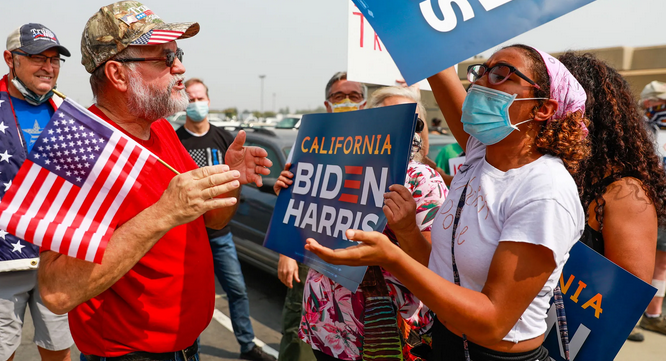U.S. Politicians Who Led Social Change
In the tapestry of American history, certain U.S. politicians stand out as architects of profound social change, leveraging their positions to dismantle barriers and propel the nation towards greater inclusivity.

Pioneers in Civil Rights: Shaping a New Era
The mid-20th century witnessed the emergence of political trailblazers committed to social change. Figures like Martin Luther King Jr., alongside politicians such as Lyndon B. Johnson and John F. Kennedy, played pivotal roles in advancing civil rights, challenging systemic racism, and envisioning a more equitable society.
Women’s Rights Advocates: From Seneca Falls to Capitol Hill
The fight for gender equality found champions in U.S. politicians who fervently advocated for women’s rights. From suffragists like Susan B. Anthony to contemporary leaders like Ruth Bader Ginsburg and Kamala Harris, these figures shattered glass ceilings, altering the landscape for generations to come.
LGBTQ+ Advocacy: Breaking Barriers and Fostering Acceptance
In recent decades, U.S. politicians have been at the forefront of the LGBTQ+ rights movement. Harvey Milk, the first openly gay elected official, and contemporary figures like Tammy Baldwin have courageously championed social change, fostering greater acceptance and dismantling discriminatory policies.
Environmental Stewards: Legislating for a Sustainable Future
U.S. politicians have been instrumental in driving the environmental movement. Visionaries like Theodore Roosevelt laid the groundwork for conservation, while more recent figures such as Al Gore and Alexandria Ocasio-Cortez advocate for bold policies to address climate change, heralding a new era of environmental awareness.
Education Reformers: Transforming the Pathways of Opportunity
The quest for social change often intersects with educational reform. Figures like Horace Mann and Shirley Chisholm recognized the transformative power of education in breaking cycles of poverty and inequality, working to reshape the educational landscape for marginalized communities.
Criminal Justice Reform: Advocates for Equity and Rehabilitation
In addressing systemic issues, U.S. politicians have turned their attention to criminal justice reform. Figures like Cory Booker and Rand Paul have championed policies aimed at rectifying inequalities within the justice system, emphasizing rehabilitation over punitive measures.
Modern Advocates for Healthcare Access: Navigating a Complex Landscape
In recent years, U.S. politicians have grappled with the challenge of ensuring equitable access to healthcare. Leaders like Bernie Sanders and Nancy Pelosi have sought to transform the healthcare system, advocating for comprehensive reforms to provide affordable and accessible medical services for all.
Advocates for Disability Rights: Fostering Inclusivity in Legislation
The movement for social change encompasses advocacy for the rights of individuals with disabilities. U.S. politicians like Tom Harkin and Tammy Duckworth have spearheaded efforts to promote inclusivity, crafting legislation to break down barriers and ensure equal opportunities for those with disabilities.
Immigration Reform: Navigating Complexities for a Fair System
The issue of immigration has been a focal point for social change, and U.S. politicians like Ted Kennedy and Alexandria Ocasio-Cortez have sought comprehensive immigration reform. Their efforts aim to create a fair and just system that addresses the complexities of immigration while upholding human rights.
Conclusion
In conclusion, U.S. politicians, as architects of social change, embody the spirit of progress that defines the nation’s journey. From the civil rights movement to environmental advocacy, these leaders have catalyzed transformative shifts. Hence, leaving an enduring legacy that continues to shape the American narrative. In their pursuit of justice, equality, and a better future, these politicians stand as beacons. Hence, guiding the nation towards a more inclusive and equitable tomorrow.

